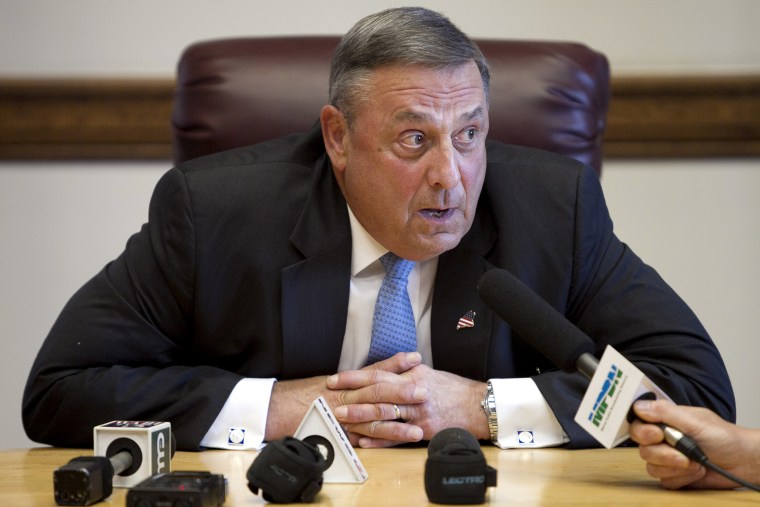Republicans are not, strictly speaking, a party obsessed with cutting taxes. The caricature is rooted in fact, but it's incomplete -- Republicans are actually a party committed to cutting taxes on the wealthy.
This has been an underappreciated aspect of the GOP vision for several years. Indeed, it was part of Mitt Romney's "47 percent" problem a few years ago -- the Republican presidential hopeful complained, among other things, about the millions of families who "pay no income tax." A wide variety of GOP officeholders, candidates, and pundits have made related complains about the poor not having "skin in the game" because their tax burdens simply aren't significant enough.
It's against this backdrop that Shaila Dewan reported the other day that some Republican-led states are "considering tax changes that in many cases would have the effect of cutting taxes on the rich and raising them on the poor."
Conservatives are known for hating taxes but particularly hate income taxes, which they say have a greater dampening effect on growth. Of the 10 or so Republican governors who have proposed tax increases, nearly all have called for increases in consumption taxes, which hit the poor and middle class harder than the rich. Favorite targets for the new taxes include gas, e-cigarettes, and goods and services in general.... At the same time, some of those governors -- most notably Mr. LePage, Nikki R. Haley of South Carolina and John R. Kasich of Ohio -- have proposed significant cuts to their state income tax. They say that tax policies that encourage business growth provide more jobs and economic benefits for everyone.
Kansas has already experimented with shifting tax burdens downward -- away from the wealthy and towards those with lower incomes -- and the results have been pretty disastrous.
As an economic matter, this GOP approach is discredited nonsense. As a political matter, I'm not sure how Republican politicians are going to be able to sell, "We want to ask less of the wealthy and more from the poor."
But as a rhetorical matter, let's not forget that Republicans have spent the last few months arguing, with varying degrees of sincerity, that the party is now suddenly concerned with chronic economic inequalities. Despite decades of arguments that rejected the very idea of noticing wealth gaps, GOP leaders, left with no other coherent economic arguments, decided to focus on the "problem" of prosperity benefiting "job creators" over the poor.
Except such talk looks pretty silly when the party is also pushing for higher taxes on those with lower incomes and lower taxes on those with higher incomes.
